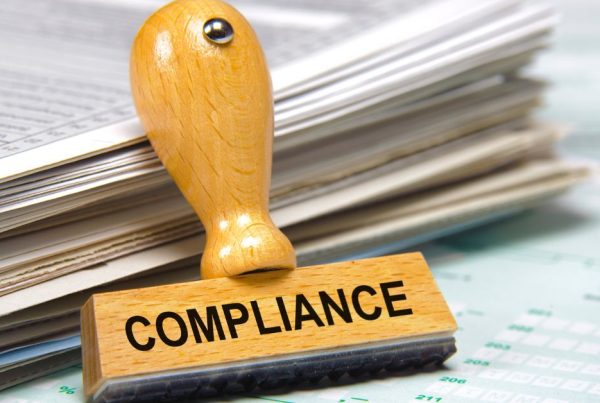
Managing remote development teams has become a crucial aspect of modern business practices, especially for IT and software development firms. Efficiently overseeing remote teams requires clear communication channels, robust time tracking mechanisms, and a collaborative work environment to ensure productivity and accountability. By implementing these strategies, companies can navigate the complexities of remote work and maintain high performance and employee satisfaction.
Establish Clear Communication Channels
Importance of Communication in Remote Teams
Effective communication has become more critical with the increase in remote work. It is an essential tool in maintaining strong, lasting working relationships at all levels of an organization, especially in an environment where face-to-face interactions are limited ( source ). Clear communication helps avoid misunderstandings that can arise due to different time zones or juggling competing priorities in a remote work environment. It also helps build trust among team members and ensures productivity ( source ). However, poor communication can lead to decreased productivity, efficiency, and collaboration among remote teams. It can also result in a lack of daily physical interaction, creating a lack of belonging and reducing employee engagement for remote workers ( source ).
Tools and Technologies
Numerous tools are available today that aid in effective communication for remote teams. Tools like Slack, Microsoft Teams, and Google Hangouts allow for real-time conversations, making it easier for employees to have fast conversations throughout the day. These tools also allow for the creation of “channels” with rules to keep discussions on topic ( source ). Miscommunication can arise when too many tools are used, so it becomes essential to select the right communication channel depending on the formality of the message, nature of the work, and level of collaboration required ( source ).
Best Practices
Clear communication protocols must be established to set best practices for remote team communication. This includes setting up regular meetings or check-ins with team members to discuss progress on projects and address any concerns or questions. Encouraging an open-door policy for virtual discussions can also be beneficial. It is also important to establish clear deadlines and expectations. The clearer the goals, the smoother the journey ( source ). Furthermore, fostering a feedback-rich environment and scheduling team-building activities can enhance communication in a remote team.
In conclusion, while challenges might arise due to the lack of face-to-face interactions in remote teams, with the right tools and best practices, effective communication can be achieved. Minute7, with its time tracking and expense reporting solution, can further aid in maintaining effective communication by providing clear and concise tracking of hours worked and expenses incurred, ensuring everyone on the team is on the same page.
Implement Robust Time Tracking and Reporting Mechanisms
Importance of Time Tracking in Remote Work
In the evolving landscape of remote work, efficient time tracking has become indispensable. It ensures accountability and productivity among team members, providing a clear framework for managing billable hours for clients and projects. Time tracking is essential for remote employees as it guarantees they are compensated fairly and offers transparency into work hours, aiding in project progress tracking and budget forecasting ( source ). Moreover, a structured time tracking system helps employees manage their time effectively, ensuring tasks are completed within set deadlines ( source ).
Tools for Time Tracking
One of the most effective tools for time tracking and expense reporting is Minute7 . Minute7 integrates seamlessly with QuickBooks, or it can function as a standalone solution. Its features include timesheets, expense tracking, a mileage calculator, receipt attachment, reporting, a mobile app, and secure data storage. Designed for professional service firms, Minute7 enables users to track time and expenses against specific customers and projects, thereby boosting productivity and operational efficiency ( source ). The tool also offers significant cost savings by accurately tracking time and resources, making it an ideal choice for businesses looking to streamline their time management processes.
Best Practices
To make the most of time tracking, it is essential to set clear expectations for logging hours. Employees should understand when and how to log their work hours to ensure consistency. Utilizing a reliable time tracking app like Minute7 is crucial for meeting these needs. Regularly reviewing time logs helps identify and address any discrepancies, ensuring optimal productivity and efficient use of time ( source ). Additionally, breaking down tasks into manageable parts can make the tracking process less daunting and more effective. By implementing these best practices, businesses can maximize the benefits of time tracking, ensuring both accountability and efficiency in remote work environments.
In conclusion, robust time tracking and reporting mechanisms are vital for managing remote development teams efficiently. Minute7 offers a comprehensive solution that not only tracks time and expenses but also integrates seamlessly with QuickBooks, providing a streamlined approach to managing remote teams’ productivity and accountability.
Foster a Collaborative and Engaging Work Environment
Building Team Cohesion
Building team cohesion in remote settings is essential for creating a strong team culture and promoting unity among team members. Clear and effective communication plays a crucial role in overcoming isolation and ensuring team alignment ( source ). Virtual team-building activities are a highly effective approach to fostering cohesion in remote teams. These activities help employees practice skills vital for remote work, such as creativity, critical thinking, and thoughtful communication ( source ). Activities like online lunch dates, socializing over group chat, or playing online team games can significantly enhance team bonding ( source ).
Encouraging Collaboration
Encouraging collaboration within remote teams is vital for maintaining productivity and innovation. Utilizing project management tools such as Asana, Trello, and Microsoft Teams can significantly enhance collaboration by aiding in task assignment, progress tracking, and team communication ( source ). Setting up virtual collaborative spaces like Google Workspace and Confluence can also facilitate better information and document sharing among team members, thereby enhancing collaborative efforts ( source ).
Recognizing and Rewarding Efforts
Recognizing and rewarding team members’ efforts is fundamental to maintaining motivation and engagement. Recognition is a top driver of employee engagement, with employees being 2.7 times more likely to be highly engaged when they believe they will be recognized for their work ( source ). Implementing a rewards and recognition program can lead to increased productivity, reduced employee turnover, and improved team culture. Examples of such programs include celebrating work anniversaries, hosting employee appreciation events, and spotlighting employees on a weekly or monthly basis ( source ).
In conclusion, fostering a collaborative and engaging work environment is crucial for effectively managing remote development teams. Implementing strategies for team cohesion, encouraging collaboration, and recognizing efforts can significantly enhance team productivity and morale. Minute7’s comprehensive time tracking and expense reporting features can further aid in creating an engaging work environment by ensuring transparency and accountability in remote teams.
Bringing It All Together: How Minute7 Supports Effective Remote Team Management
In the ever-evolving landscape of remote work, IT and software development firms face unique challenges in managing distributed teams. By establishing clear communication channels, implementing robust time tracking and reporting mechanisms, and fostering a collaborative and engaging work environment, businesses can navigate these challenges and maintain high levels of productivity and employee satisfaction.
Minute7 plays a pivotal role in supporting these strategies. As a QuickBooks-certified time tracking and expense reporting solution, Minute7 offers a user-friendly platform that integrates seamlessly with QuickBooks, making it easier for teams to manage their time and expenses effectively. With features like timesheets, expense tracking, a mileage calculator, and receipt attachment, Minute7 ensures that remote teams can maintain transparency and accountability, no matter where they are working from.
Moreover, the mobile app enhances flexibility, allowing employees and contractors to track hours and expenses on the go, ensuring that all team members are on the same page. The secure data storage and comprehensive reporting capabilities provide valuable insights into project progress and resource allocation, aiding in better decision-making and project management.
In conclusion, as remote work becomes the norm, leveraging tools like Minute7 can significantly enhance the efficiency and effectiveness of managing remote development teams. By integrating Minute7 into your remote work strategy, you can ensure clear communication, accurate time tracking, and a collaborative work environment that drives success for your organization. For more information on how Minute7 can benefit your business, visit Minute7 .



